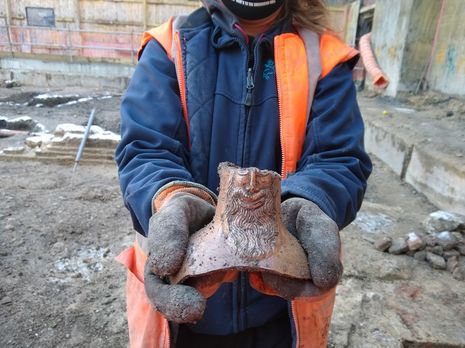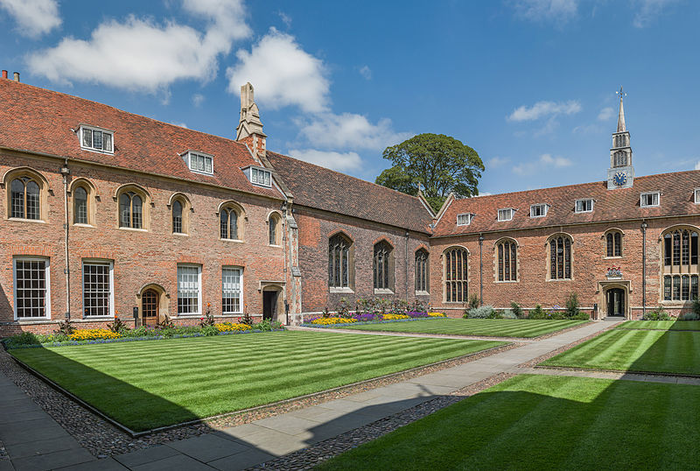Jesus College excavations provide insight into the College’s medieval history
The excavations may fill the ‘fifty-year gap in the early records of the College’s history’

Medieval structures have been uncovered by archaeologists working at Jesus College’s Pump Court, a press release from the College states.
The findings include an undiscovered cloister and deposits, which the archaeologists believe can provide evidence of the way of life of those at the nunnery prior to the establishment of the College in the Renaissance period.
Cotswold Archaeology and Cambridge Archaeological Unit (CAU), who have been carrying out the excavations, have been working on the site in advance of plans to modernise the kitchen block.
The uncovering of the medieval cloister included parts of large wall, which the press release speculates “may be the remains of a covered walkway on the edge of a yard space, such as a pentice or cloister, with an open or arcaded side facing across to the nunnery hall.”
Robert Athol, Jesus College’s Archivist, said that “this discovery is extremely important in our understanding of the history of the site,” especially in light of the “fifty-year gap in the early records of the College’s history”.
Prior to the establishment of the College, from the 12th century, the earliest buildings on the site was a nunnery dedicated to St Radegund and St Mary, which was later dissolved in 1496 and repurposed as one of the colleges at the University.
Further excavation of the site has produced kitchen and domestic waste, layers of building rubble, alongside pieces of windows, doorways, and columns. It is hoped that the archaeological remains will provide an insight into the diets of the nunnery’s inhabitants.
Archaeologists have also unearthed pieces of window glass and cames, which are strips of lead that hold pieces of glass together in a window. The debris, according to the press release, is “evidence of centuries of renovation, demolition and re-roofing work at the nunnery and College.”
The uncovered domestic waste sites contain findings ranging from animal bones to clay tobacco pipes, alongside 16th-17th century Bellarmine jugs.
CAU Director Christopher Evans described the “fantastic opportunity” that the “firm economic evidence of the way of life at the nunnery” provides, adding: “this has proved to be an absolutely extraordinary site. It is basically a matter of gender succession – an all-female community superseded by an all-male community.”
Athol also emphasised that “it’s fascinating to see the last surviving remnants of some of the buildings mentioned in the historic record of the College.”
 News / Hundreds of Cambridge academics demand vote on fate of vet course20 February 2026
News / Hundreds of Cambridge academics demand vote on fate of vet course20 February 2026 News / University Council rescinds University Centre membership20 February 2026
News / University Council rescinds University Centre membership20 February 2026 News / Judge Business School advisor resigns over Epstein and Andrew links18 February 2026
News / Judge Business School advisor resigns over Epstein and Andrew links18 February 2026 News / Petition demands University reverse decision on vegan menu20 February 2026
News / Petition demands University reverse decision on vegan menu20 February 2026 News / Caius students fail to pass Pride flag proposal20 February 2026
News / Caius students fail to pass Pride flag proposal20 February 2026











